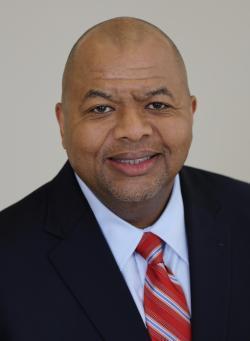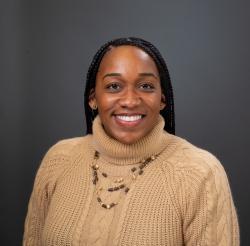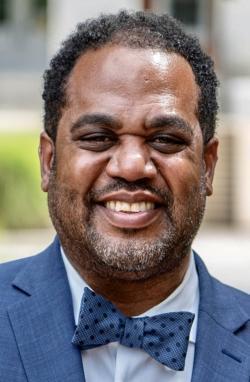BSOS in Action ~ Violence Reduction
Faculty
 | Thomas Abt Associate Research Professor, Criminology and Criminal Justice (CCJS) Thomas Abt is the founding director of the Center for the Study and Practice of Violence Reduction, also known as the Violence Reduction Center (VRC), which provides guidance to policymakers and practitioners on choosing the right combination of evidence-informed anti-violence strategies for their jurisdictions. The VRC travels to potential partner cities to convene multi-day meetings with local leaders in government, law enforcement officials, community advocates and activists, and academics. The VRC presents evidence-informed strategies for combating gun violence, and facilitates conversations in which attendees select strategies to benefit their community. The VRC and government officials then create an action plan. Three cities have worked with the VRC so far: Knoxville, Tennessee; Boston; and St. Louis. Since working with the VRC, between 2022 and 2023, Knoxville has seen murders decrease by 33% and nonfatal shootings by 12%. Boston has suffered just three homicides to date in 2024, an 82% reduction compared to the same period last year. St. Louis recently began implementing its new plan. By the end of 2024, the VRC also plans to publish a systematic meta-review of violence reduction strategies, and adapt its results into a public, web-accessible registry. |
 | Bianca Bersani Associate Professor, CCJS Bianca Bersani is the director of the Maryland Crime Research and Innovation Center (MCRIC), which works with law enforcement, community groups, and state and local officials to provide Maryland jurisdictions and communities with data analysis, evaluation, and research expertise to support public safety efforts. MCRIC has spent the last four years helping the Greater Baybrook Alliance reduce gun violence in Baltimore City’s Curtis Bay and Brooklyn neighborhoods, and in Anne Arundel County’s Brooklyn Park neighborhood. Bersani and her research team—which included CCJS Associate Professor Greg Midgette—conducted a needs-based assessment of the community. They reviewed police department data to determine which crimes are most common in certain areas, and interviewed residents, business owners, police officers, and health service providers to understand their top concerns for the community. The research team then helped develop and guide a three-year violence reduction plan. For the next two years, a MCRIC team member will also work as an “embedded analyst” within the Prince George’s County Police Department to help the department increase understanding of the spatial concentration of crime in the county, particularly which spaces are hot spots for gun violence. |
 | Rod K. Brunson Professor and Chair, CCJS Rod Brunson has conducted research on neighborhood disadvantage, police-community relations, delinquent groups, youth violence, and gun ownership for decades. In 2022, Preventive Medicine published the results of a firearm behavior study Brunson conducted with former graduate student Brian Wade—now a Senior Data Scientist at the University of Pennsylvania’s Crime and Justice Policy Lab—and CCJS Assistant Professor Brooklynn Hitchens. The research team conducted face-to-face interviews with 51 Black male residents of Brooklyn and Bronx, New York who had been shot or shot at. They found that individuals at the greatest risk of experiencing gun violence generally store firearms in unsecured, easy-to-access locations, which contributes to increased feelings of community unease, spurs individuals’ desire to arm themselves and peers, and raises the likelihood of fatal and nonfatal shootings. Brunson and Wade conducted a similar study with males in Newark, New Jersey. Brunson and Wade hope to publish the results of that study this summer. |
 | Brooklynn Hitchens Assistant Professor, CCJS Brooklynn Hitchens grew up in the area where much of her early gun violence research is focused: Wilmington, Delaware. As a graduate student, Hitchens surveyed and interviewed more than 800 Black men and women who had been involved in illegal activity in Wilmington in some capacity—and shares insights in her co-written book Murder Town, USA: Homicide, Structural Violence, and Activism in Wilmington (Rutgers University Press, 2023). Hitchens plans to write her second book this summer, the contents of which will focus on Black women’s experiences as direct and indirect victims of gun violence. Hitchens has taken her multi-method, “participatory action research” approach to other cities as well. This spring, Hitchens finished collecting data for a four-city study examining high-risk gun carrying among Black youth (ages 14-24) in Philadelphia, Detroit, Brooklyn, and Wilmington. She hopes to publish multiple research papers on her findings in the years to come. Additionally, following earlier research on Black perceptions of the Baltimore Police Department, Hitchens and a multidisciplinary team of campus collaborators published the results of a recent study that found that 22%-57% of Baltimore 911 calls could be diverted to civilian responders, freeing police officer time and potentially improving police-community relations. |
 | Joseph B. Richardson MPower Professor of African American and Africana Studies, Medical Anthropology and Epidemiology Joseph B. Richardson is co-director of UMD’s Prevent Gun Violence: Research, Empowerment, Strategies & Solutions (PROGRESS) Initiative, which uses a multidisciplinary, community-empowerment approach to reduce gun violence. PROGRESS supports equitable research partnerships between gun violence researchers at UMD, community-based violence prevention/intervention programs, and community members in the National Capital Region. Richardson’s co-director is Dr. Woodie Kessel of the School of Public Health. Since its November 2023 debut, PROGRESS has launched a Distinguished Speaker Series to convene gun violence scholars and practitioners from diverse personal and professional backgrounds. PROGRESS also introduced a seed grant funding program in the spring to support three projects challenging campus researchers and community-based organizations to find innovative ways to combat gun violence. Richardson is also leading multiple research projects: two in Washington, D.C.; two in Baltimore; and one in Philadelphia. |



